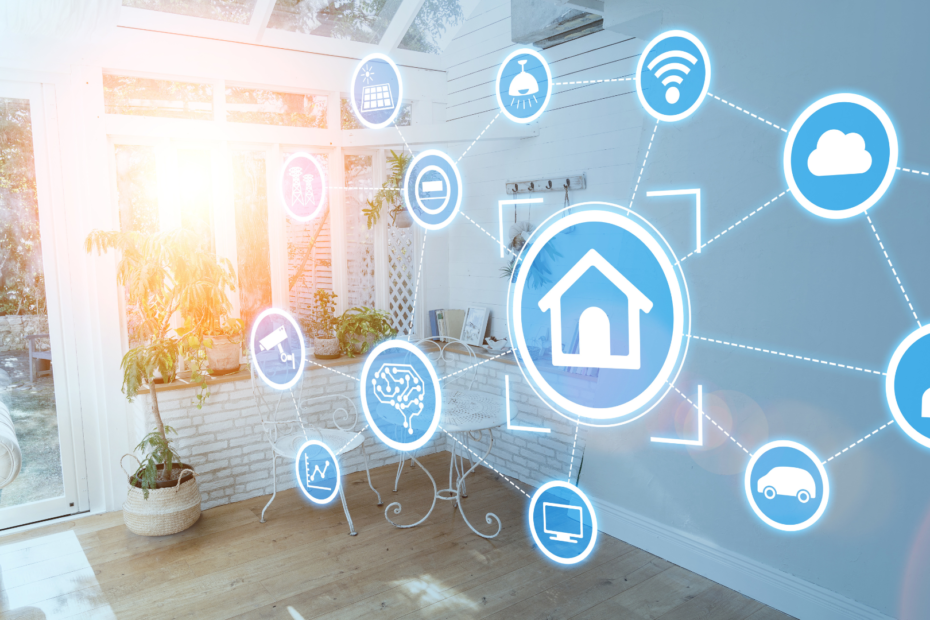You’re probably familiar with smart home devices, like smart thermostats and smart locks. These are devices that can be controlled remotely, over the Internet, through a smartphone app, or voice commands through smart speakers. While home automation is convenient, it also raises some privacy concerns. Smart home devices often collect a lot of information about you. Many smart thermostats and locks have built-in cameras and microphones, which could then be used to spy on you.
Automation allows you to control your home from anywhere, at any time. Innovative smart home solutions like Crestron Home Automation systems can add convenience and simplicity to your home and life. These often include multi-room audio video systems, lighting controls, electronic curtains and heating. Moreover, automation plays a pivotal role in conserving energy by overseeing energy generation and regulating consumption, ensuring that your home operates at peak efficiency. While smart home technology is set to become more and more commonplace, there are still a few pros and cons to consider before you take the plunge.
Pros of Smart Automation in Your Home
- Energy savings
Embracing smart automation in your home brings a host of benefits, and saving energy is just the beginning. Whether it is to choose the right HVAC system for your home or invest in smart security features, smart automation harness advanced technology to manage lighting, security, appliances, and thermostat settings. Making your home more energy-efficient isn’t just good for the planet; it’s also a savvy financial move. Take, for example, swapping out old light bulbs for energy-efficient ones, which can slash up to $100 off a family’s yearly utility bills.
Furthermore, transitioning to smart home automation can result in additional savings on energy bills. To achieve these benefits, you can enlist the services of an electrician from https://www.mlelectricalandgarage.com/ or another online platform. These professionals can install necessary sockets for home appliances and replace existing electrical components with smart ones, helping you create a more energy-efficient and cost-effective home environment.
- Privacy and Security
Security is one of the pros of smart home automation systems. With these systems, you can remotely turn on and off the lights in your home, adjust the temperature, and even lock the doors. With any home, security is a concern and one of the main reasons homeowners invest in home automation systems. Additionally, privacy can also be improved with certain automated features. For instance, installing motorized power screens in Kirkwood, MO (if that’s where you live) can be a great way to maintain your privacy and prevent any outsiders from looking in.
- Convenience
Home automation comes with its fair share of benefits, including convenience. Being able to get one device to control all your other smart devices is a huge bonus, especially when you’re in the midst of cooking dinner and don’t want to step away from the stove to get your phone or turn off the lights. Other conveniences include automated efficiency, which means your home is operating more smoothly, and you’re not wasting money by providing your air conditioning or heater with unnecessary energy. You can also check the condition of these appliances by installing a monitor from romeosfuel.com that would report to your smartphone. These are just some examples of the convenience smart devices and applications provide.
Cons of Smart Automation in Your Home
- System compatibility
Smarthome automation is exciting because it offers so many new possibilities. Smarthome tech can automate your utilities, your security, your entertainment, your home, and your life. But home automation can also have its downsides. System compatibility issues can cause you to lose control of your smart home devices, limit your smart home features, and even prevent you from using your smart automation technology altogether.
- Complex technology
Smart home automation is all the rage these days, with a whole industry of devices and apps making everything from lights to thermostats controllable from your smartphone. But if you’re struggling with a Wi-Fi password or your router is lagging, the cons of Smart Automation in Your Home can make your life difficult. Smart home technology is a great convenience, but it has its own set of drawbacks as well. One of the main drawbacks that many homeowners don’t realize is that smart technology can be quite complex, and it requires a lot of maintenance if you want to keep the technology running well. If you don’t want to learn how smarthome technology works and keep up with regular maintenance, you may not be a good candidate for smart home technology.
- Installation
Installation is one of the cons of Smart Automation in Your Home. After you know what you want to automate in your house and which device you want to control, you need to choose a platform for your Home Automation System Installation. The options are either DIY or Professional Installation. If you are going for DIY Installation, you first need to process the list of devices you want to control, and second, you need to install your device separately.
- Cost
Cost is one of the cons of Smart Automation in Your Home. Since it is expensive, it is only intended for the upper class. People who can afford this system will be the only ones who can afford it. Smart Automation in Your Home is a future technology. The sensors that will take part in this system are expensive. The Smart Automation in Your Home system itself will cost $5,000 to $20,000. That’s a lot of money to spend on one electronic device.
Smart automation devices have gained popularity in recent years. They turn your devices into a hub for your smart home, allowing you to control them from anywhere from your smart device.
